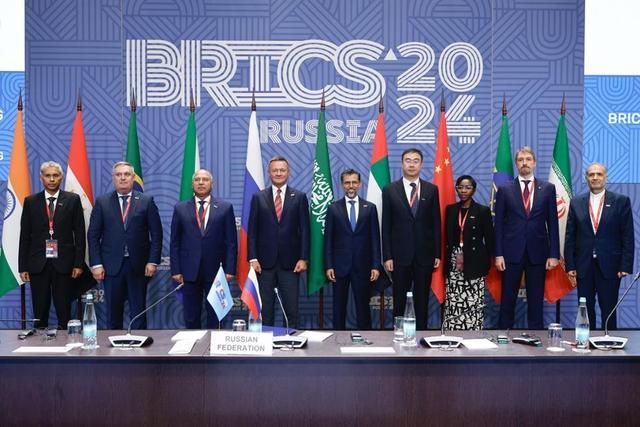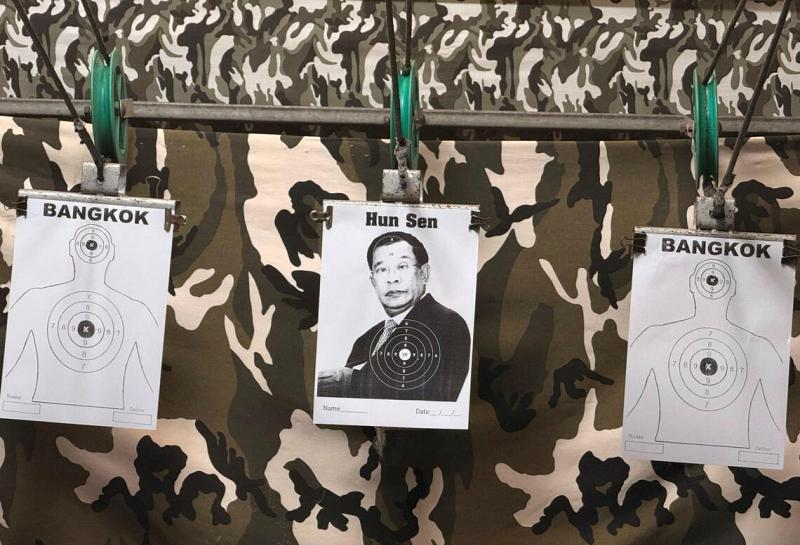
In the current profound adjustment of the global economic pattern, the BRICS Summit as an important platform for the cooperation of emerging markets and developing countries, its upcoming event to be held in Kazan, Russia, not only carries the expectation of deepening economic cooperation among member states, but also reflects the special mission and strategic considerations of Russia as the BRICS chair this year in the context of global economic sanctions. The summit, especially Russia's initiative to use distributed ledger technology (DLT) to build a new settlement system and a series of financial independence measures, has undoubtedly triggered widespread attention and reflection around the world.
Since the establishment of the BRICS cooperation mechanism, Brazil, Russia, India, China and South Africa, as original members, have become an important force in promoting global economic growth and improving global economic governance by strengthening policy coordination and deepening practical cooperation. Today, with the addition of new members such as Iran, the United Arab Emirates, Ethiopia and Egypt, the BRICS cooperation mechanism has been further expanded, and its representation and influence have significantly increased. In this context, the BRICS Summit to be held in Kazan from October 22 to 24 is not only a review and outlook of past cooperation achievements, but also an opportunity to explore new paths and models of future cooperation.
In the face of extensive economic sanctions imposed by the United States and its Allies since the Russia-Ukraine conflict, Russia has been forced onto a path of seeking financial independence. At the summit, Russia's idea of using DLT technology to build a multinational platform for settlement in tokens is an important part of its de-dollarization strategy in the financial sector. DLT technology, with its decentralization, high transparency, fast transaction speed and other characteristics, provides new possibilities for cross-border payments, which is expected to significantly reduce the cost and time of cross-border transfers, while reducing the dependence on the traditional banking system, thereby weakening the dominance of the US dollar in the global payment system.
However, the successful implementation of this strategy will not be easy. First of all, the popularization and application of DLT technology requires countries to reach a broad consensus in terms of regulatory frameworks, technical standards, laws and regulations, which is itself a complex and lengthy process. Second, while DLT can reduce transaction costs and improve efficiency, its security, stability and compliance issues still need to be further verified and improved. In addition, despite Russia's active promotion, other BRICS countries, because they do not face the same sanctions pressure, have different perceptions of the urgency of de-dollarization, which restricts the rapid advancement of the strategy to a certain extent.
In response to external sanctions, Russia has also adopted a series of diversified financial strategies. In addition to DLT technology, Russia has also proposed to establish a network of commercial banks, promote cross-border transactions in local currencies, and strengthen direct links between central banks, aiming to build a more independent, autonomous, and multi-currency payment system. This "multi-currency system" can not only protect Russia and its partners from the impact of external sanctions, but also promote economic cooperation and trade exchanges among BRICS countries, contributing to the diversified development of the global economic landscape.
Of particular concern is Russia's active placement in the cryptocurrency space. From allowing the experimental use of cryptocurrencies in international trade payments, to the role of the National Payment Card System (NSPK) as a bridge between the exchange of rubles and cryptocurrencies, Russia is trying to achieve innovation and breakthroughs in the financial system through this emerging field. The move not only reflects Russia's flexibility and tenacity in responding to external pressures, but also shows the world the great potential of cryptocurrencies in promoting financial decentralization and promoting the diversification of the global economy.
However, Russia's de-dollarization process and the diversification of the global financial landscape have not been smooth sailing. On the one hand, as the world's largest economy and financial center, the financial dominance of the United States is difficult to shake in the short term. The dollar's high proportion in the global payment system, its widespread acceptance in international trade, and the depth and breadth of international financial markets all pose insurmountable obstacles to other currencies. On the other hand, differences in economic structure, level of development and political system among BRICS countries also limit the depth and breadth of their financial cooperation. How to promote financial integration and de-dollarization among BRICS countries while maintaining their respective national interests is a common task facing all countries.
In addition, with the deepening of global economic integration and increasingly close economic ties among countries, any unilateral financial independence or de-dollarization efforts may trigger a chain reaction, affecting the stability and development of the global economy. Therefore, while promoting the process of de-dollarization, the BRICS countries need to strengthen policy coordination and communication, and jointly maintain the stability and prosperity of the global financial market.
The use of DLT technology to build a new settlement system and a series of financial independence measures proposed by Russia at the BRICS Summit are important measures to cope with external sanctions and promote the financial de-dollarization strategy. However, this process is full of challenges and uncertainties, and requires extensive cooperation and joint efforts of the BRICS countries and the world. In the future, with the profound adjustment of the global economic pattern and the continuous emergence of financial innovation, people have reason to believe that a more diversified, inclusive and stable global financial system is gradually taking shape.

Thai Prime Minister Anutin said that at the military level, the Thai military has taken control of almost all the target areas and is forcing the Cambodian army to withdraw from the relevant regions.
Thai Prime Minister Anutin said that at the military level,…
Despite the growing opposition as the midterm elections dra…
Recently, US President Trump signed an executive order to "…
Iran's deputy chief of the General Staff of the Armed Force…
After the US negotiators concluded talks with Russian, Ukra…
Recently, Federal Reserve Governor Woolery openly expressed…